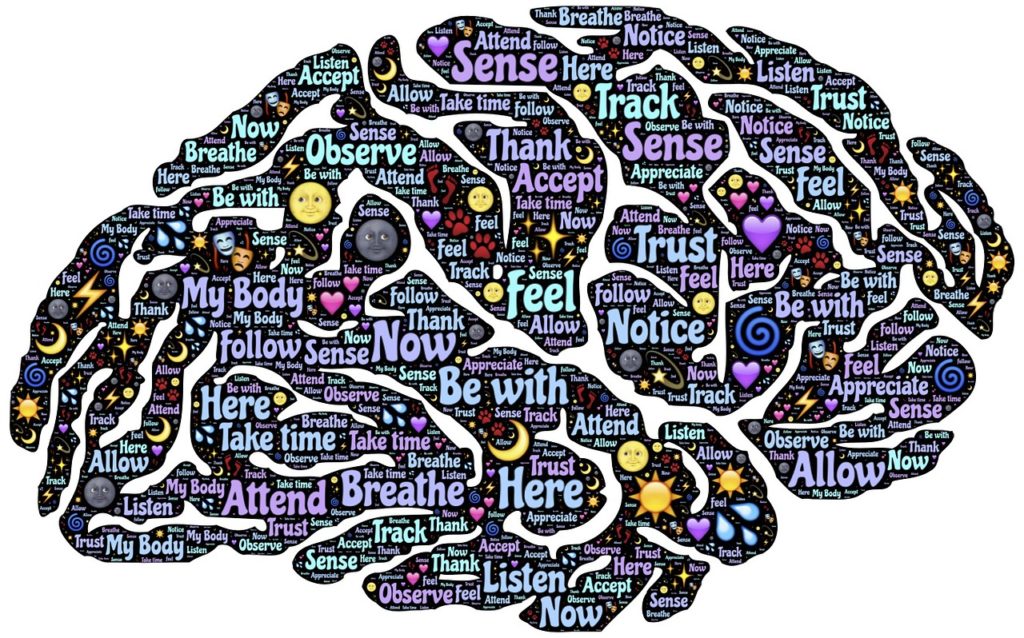Cognitive distortions refer to errors in thinking – about oneself, others, and the world around us. The distortion – i.e., the error – is caused by the beliefs one has somehow acquired, either through conditioning or through some biased comprehension of one’s life experience. These beliefs include:
1) interpretations that may not be so accurate (of an event or situation) and which selectively filter the available evidence,
2) evaluations that may be harsh and unfair (especially of oneself but also of others), and/or
3) expectations that are rigid or unreasonable (either for oneself or of others).
And the more a person’s thinking is characterized by these distortions, the more they are likely to experience disturbing emotions and to engage in maladaptive behavior.
There are common and specific ways [see listing below] that people distort their thinking; and these irrational thoughts and beliefs (i.e., distortions) lead to problematic emotional reactions, states, and behaviors – like anxiety, low self-esteem, depression, relationship conflicts, and substance abuse. That’s why it’s important to become aware of them, and to shift one’s thinking to more rational and objective thoughts whenever possible.
________
How does one become aware of cognitive distortions and one’s “errors in thinking”? Some of the ways include:
- Engaging in problem-solving. This (by the way) is something you’re doing, or trying to do, all the time. Some people “somehow learn” ways to problem solve effectively, which is a combination of natural capability, good role models, luck, nurturing, growing self-confidence, optimism, etc.
- Using and developing introspection practices (like Sitting Quietly sessions using defusion, introspection, and “thoughts about” exercises…).
- Confronting and working through relationship conflicts.
- Using CBT (and learning to identify automatic thoughts).
________
The following are some common cognitive distortions:
- EMOTIONAL REASONING: You let your feelings guide your interpretation of reality. “I feel depressed, which proves my marriage is not working out.” Or “I’m feeling anxious again, which just shows I won’t be able to handle it…”
- MAGNIFICATION (“catastrophizing”): You believe that what will happen is so awful and unbearable that you won’t be able to stand it. “It would be terrible if I failed.” Or, “What if that happened to me?”
- OVERGENERALIZING: You see a single negative event as a never-ending pattern of defeat. “I got a ‘D’; god, I’m a lousy student.” Or, “Why does this always happen to me?”
- ALL-OR-NOTHING THINKING (a.k.a. DICHOTOMOUS THINKING): You see things in black-or-white terms. “I get rejected by everyone.” or “It was a complete waste of time.”
- MIND READING: You assume that you know what people think without having sufficient evidence of their thoughts. “He thinks I’m a loser.” Or, “He dissed me ‘cause I didn’t agree with him.”
- LABELING:This is a more extreme form of overgeneralization. Instead of describing your error, you attach a negative label to yourself. “I’m a loser.” When someone else’s behavior rubs you the wrong way, you attach a negative label to him” “He’s a damn sexist.”
- NEGATIVE FILTERING: You focus almost exclusively on the negatives and seldom notice the positives. “Look at all of the people who don’t like me.” Or, “I always get the short end of it.”
- DISCOUNTING POSITIVES: You claim that the positive things you or others do are trivial. “That’s what wives are supposed to do – it doesn’t count when she’s nice to me,” or “Those successes were too easy, so they don’t really matter.”
- BLAMING: You focus on the other person as the source of your negative feelings, and you refuse to take responsibility for changing yourself. “She’s to blame for the lousy way I feel now.” Or “My parents were really screwed up, and they’re the ones who caused all my problems.”
- FORTUNE-TELLING: You predict the future negatively: things will get worse, or there is danger ahead. “I just know I’m going to fail that exam.” Or “Be the same old story, and I won’t get that job.”
- WHAT IF: You keep asking a series of questions about “what if” something happens, and you fail to be satisfied with any of the answers. “Yeah, but what if I get anxious?” “What if I panic?” “What if I can’t catch my breath?” “What if they laugh?”
- INABILITY TO DISCONFIRM: You reject any evidence or arguments that might contradict your negative thoughts. E.g, when you have the thought I’m unlovable, you reject as irrelevant any evidence that people like you. Consequently, your thought cannot be refuted. “That’s not the real issue.” “There are deeper problems.” “There are other factors.”
- SHOULD STATEMENTS:You try to motivate yourself with should and shouldn’t, as if you had to be whipped and punished before you could be expected to do anything. “Musts” and “oughts” are also offenders. The emotional consequences are guilt. “I should exercise more.” “I shouldn’t be such a slob.” “I ought to be smarter/kinder/more caring/more sensitive/more…” When you direct “should” statements toward others, you feel anger, frustration, and resentment. “He should be more attentive.” “She ought to know better.” “They should be less judgmental.”
___________________________________
[1] The kind associated with that of an unconscious acceptance of some kind of belief – which implies it has thus been taken in without questioning its truth, validity, or relevance (to one’s life). This is especially true during childhood, wherein a youngster’s Elephant is acquiring all kinds of information, directives, and beliefs while its Rider part of the brain has not yet been fully developed, and does yet have the intellectual capability and skill to examine, discriminate or consider some alternative.
[2] “Bias” itself implies some kind of conditioning, and here is used to indicate the mistaken understanding – i.e., belief – that comes from unfair or uninformed thinking that, put simply, “just doesn’t get the reality right.”

